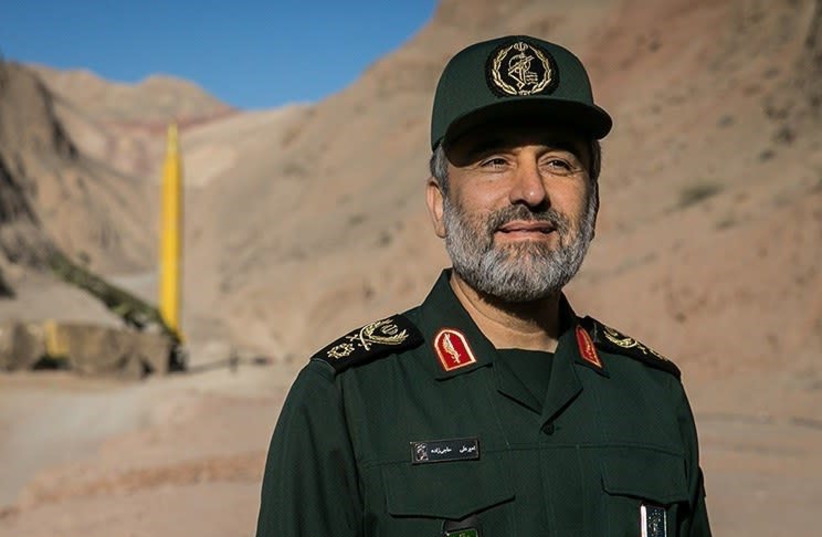Iran has reached new levels of missile, satellite and drone technology, according to Amir Ali Hajizadeh, commander of the Islamic Revolutionary Guard Corps Aerospace Force. He is a central figure in Iran’s missile and drone programs and a key official behind Iran’s technological successes.
Hajizadeh gave a speech over the weekend that was discussed in Iranian media. According to the account at Tasnim News Agency, he said Iran is determined to put more satellites into space using a new launch vehicle.
Iran's previous space adventures
In early November, Iran said it had successfully tested the Qaim 100 satellite-carrying space launcher, which is capable of carrying 80-kg. satellites into orbit. It is a three-stage, solid-fuel suborbital satellite carrier. Iran believes it can put satellites into orbit 500 km. from the earth.
This would be near a low-earth orbit, which is usually around 200 km.-300 km. from the earth. Iran has launched other satellites in the past. In 2009, Iran launched the Omid satellite with a Safir rocket into a low-earth orbit.
It launched other satellite attempts in 2011, 2015 and 2020 and claims to have sent a satellite up into orbit this past March. That satellite, the Noor 2, is believed to be its second military satellite in space.

“Today, we are at the world level in the field of unmanned aircraft and drones, and our achievements have challenged the movements that the big and powerful armies of the world started working decades before us,” Hajizadeh said over the weekend. “There are also many achievements that will come out on the day of any ‘incident’ if necessary, such as hitting the enemy at a distance of 1,500 km.”
Iranian threats come amid increasing worldwide tensions
The threats come after Iran struck the Pacific Zircon commercial ship in the Gulf of Oman last week, using a Shahed-136 drone.
They also come as Iran is providing Russia with drones and has sought to illegally move rocket fuel to the Houthis in Yemen. North Korea is also firing missiles and causing tensions to grow in Asia. Iran wants to keep up with North Korea and is trying to show off new technology, such as bragging about “hypersonic” missiles.
Hajizadeh said Iran was not ahead of the world in terms of some technology, and he once again referenced the “hypersonic” missile.
Iran’s recent bragging comes as the country commemorates an anniversary of the “martyrdom” of Hassan Tehrani Moghaddam, who was known as the “father of Iran’s missile program.” He died on November 12, 2011, in a blast at a missile base near Tehran.
Hajizadeh is trying to assert that his legacy has brought Iran to its new abilities, with maneuvering missiles and a “generational leap” forward in its programs.
“Today, by the grace of God, we have expanded more in the field of missile and drone defense, so that all types of radars in different areas, frequencies, heights and ranges, as well as low-altitude defense systems, medium-range to long-range systems, are all indigenous and domestically made,” he said.
Hajizadeh said Iran was determined to put a satellite into space using the Qaim 100 launcher.
“This year, we will put the first satellite into orbit with the Qaim 100 satellite [launcher],” he said.
